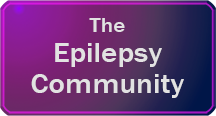
Life Story I am a 28-year-old female who has had drug-resistant epilepsy for more than 15 years. My first ever seizure was an absence seizure. I was walking down the road and I stopped walking, completely baffled about where I was. I felt like a lost cat in a forest, looking for their nest. When I ‘woke up’ from it and became conscious, I saw a lot of people staring at me and I heard a couple of comments of me being possessed. Unfortunately, if you are from my background, you usually deal with stigma when it comes to epilepsy. There is not a lot of knowledge about epilepsy, so a lot of people assume it is insanity. My absences became more frequent, and I had grand-mal seizure when I was finally diagnosed with epilepsy.
My absences became more frequent during my teenage years, so I was becoming more socially isolated. Having conversations were becoming more difficult, as I would usually forget what my friends told me. So, more and more people thought I was being rude or not paying attention to them. This was after I started my epilepsy medication. I would be sleepy, clumsy, dizzy and drowsy. My memory became awful and now if you ask me about a mate from the past or a family member or holiday I’ve been on, I will most likely say ‘who is that?’ or ‘when did that ever happen?’.
My grand-mal seizures have started becoming more regular. I am usually in hospital nearly every month now. Most of the admission ward staff know me by name already and I hardly remember them. Some of my epilepsy medication also lower my sodium levels which can be a double risk for people with epilepsy.
I’ve had chronic depression for most of my life which is quite common for people with epilepsy. Since every medication has not worked for me, I am now waiting for VNS (vagus nerve stimulation) treatment for my epilepsy.
I write poetry to deal with any feelings (negative or positive) that I may be having about my life-whether it is about my personal situations or epilepsy or depression. It has really helped. It helps bruises fade but sometimes the wounds can still remain. People with epilepsy would be put into cages and isolated from the rest of society in the past. It can sometimes feel like I am in a cage or trapped but I will never be made to feel ashamed, guilty or a burden for having epilepsy. Yes, I have a brain disorder and it is one of the most common in the UK. But I believe, there is not enough awareness or knowledge about it. If there was more, I guarantee there would be less stigma or discrimination about it.
Muna
